This Malaysian Grandfather Is Facing Death for Weed
February 26, 2021After selling chocolate bars and brownie edibles made with hemp seed oil, a 62-year-old Malaysian grandfather, known affectionately as Dr Ganja, faces the death sentence in a country where marijuana—even for medicinal purposes—remains illegal and highly taboo.
Amiruddin Nadarajan Abdullah, a grandfather of five who served in the Malaysian army for 22 years, is at the center of a case that catapulted him to national prominence as one of Malaysia’s most famous proponents of medical marijuana legalization.
“He isn’t a drug dealer or some drug lord,” his daughter Siti, who works as a local banking officer, told VICE World News.
“He’s a creative man who loves poetry and reading, but he’s also driven by science and is very modern in his thinking and approach to things.”
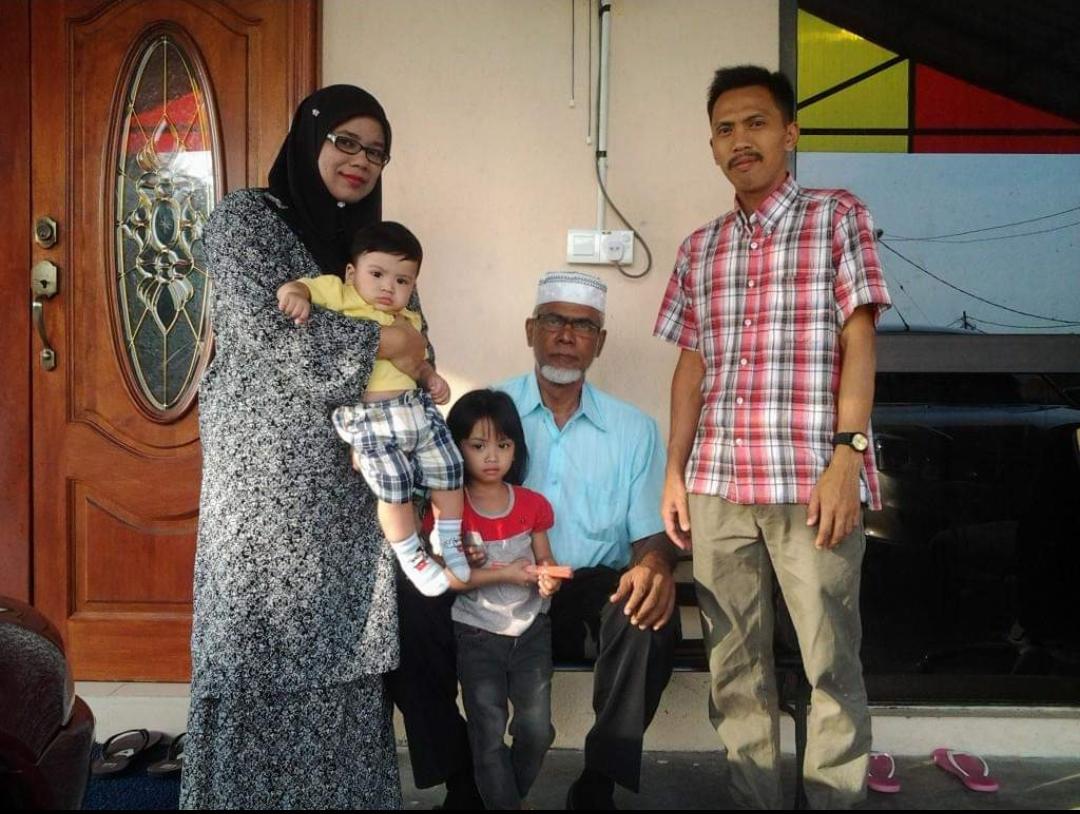
Following a United Nations decision last year to recognize the medicinal properties of cannabis, progressive drug policy advocates hoped countries around the world would catch up with evolving attitudes towards the substance, as a multi-billion dollar global medical marijuana industry continues to expand.
Malaysia, however, has some of the strictest drug laws in the world and stands in stark contrast to eased restrictions around the region and even closer to home in neighboring Thailand. Open discussions about marijuana, medical or recreational, remain taboo in Malaysia and the trafficking of it, punishable by death.
But activists and local advocacy groups remain hopeful, and say that public attitudes in the conservative and predominantly Muslim country are changing, with politicians from the previous reformist government even proposing legislation to decriminalize medical marijuana.
One of them was Syed Saddiq, Malaysia’s former youth minister, who sought the opportunity upon his appointment in 2018 to try and push the issue forward.
“There are plenty of pros for the decriminalization of medical marijuana and the idea was not new, even in Malaysia—and we would definitely have taken the steps needed if we were given more time,” he told VICE World News in an emailed statement.
“Decriminalizing marijuana offenders for the purpose of medical consumption still needs to be done. The current government should accord access to medical marijuana to those who need it, not prosecute them and punish them for it.”
“Decriminalizing marijuana offenders for the purpose of medical consumption still needs to be done. We would have taken the steps needed if we were given more time.”
— Syed Saddiq, former Malaysian youth minister in the Pakatan Harapan administration.

But Dr Ganja’s involvement in this debate came about by chance. Plagued by a series of health issues like kidney problems, diabetes and heart disease in the late 1990s, he went from being a hale army man to “a living corpse” in a span of mere months, according to Siti.
He was eventually diagnosed with a painful spinal cord tumor that caused him to lose a kidney.
Like others who struggle with chronic pain and cancer-related fatigue, Dr Ganja went in search of alternative treatments and was soon led down the rabbit hole of medical cannabis, surfing online forums for hours when he came across hemp seed oil and decided to try it.
“We saw the benefits and relief that the products brought him,” Siti said, referring to the oil from different parts of the cannabis plant, which some studies have shown to offer relief from the side effects of chemotherapy.
Doctors began seeing remarkable improvements, according to Siti, who said X-rays showed that his tumours shrank and he was experiencing much less pain.
“The discovery gave him a new lease of life. It was inspiring,” she said.
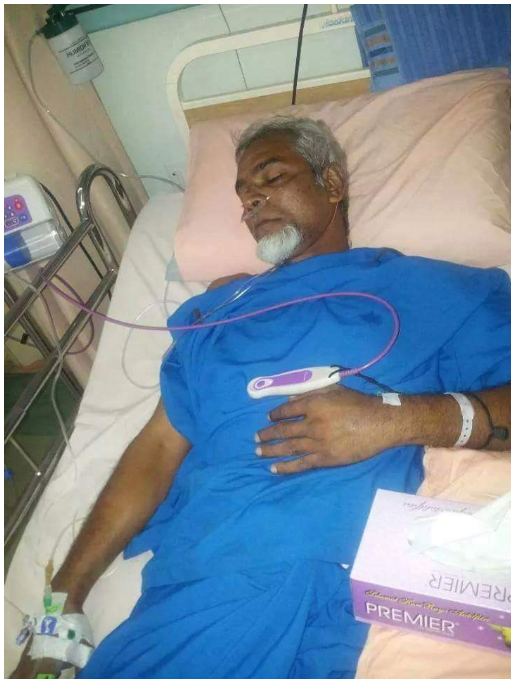
A convert to the medical benefits of marijuana, Dr Ganja started welcoming cancer patients as well as those suffering from other physical and mental health conditions to his village home in the district of Klang.
He believed in the healing properties of cannabis and often used it in edibles like brownies, chocolates and medicinal honey. In addition to his home bakery, he also ran a Facebook page where he shared “success stories” and advocated for the legalization and decriminalization of medical marijuana.
Both the page and his personal account have since been deactivated and deleted.
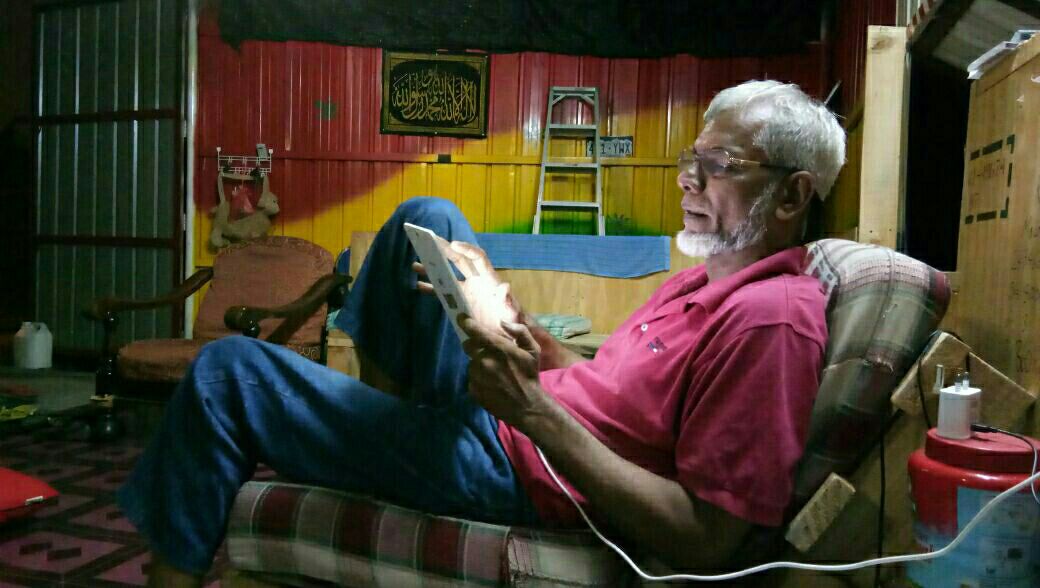
In 2017, Dr Ganja was arrested and charged with 36 offences under Malaysia’s Dangerous Drugs Act.
“The man garnered a large public following on social media by promoting the benefits of ganja and hemp seeds,” directors from the Federal Narcotics and Criminal Investigation Department told a pretrial conference held in the capital Kuala Lumpur.
“He claims that his products can cure illness and his intention was to help people.”
He is now awaiting sentencing in Sungai Buloh prison complex, one of Malaysia’s largest prison facilities where groups of inmates have tested positive for COVID-19.
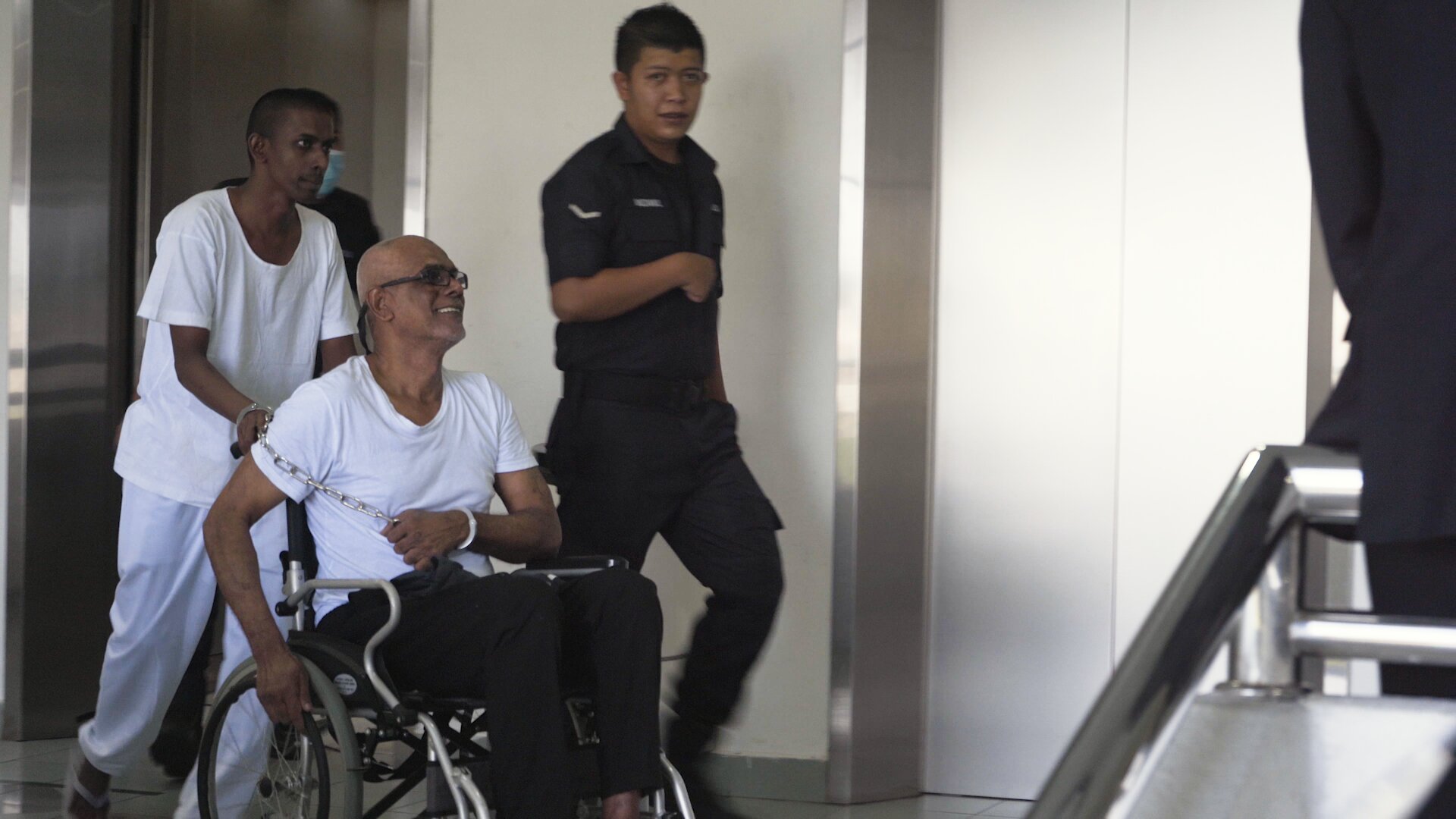
Latest photos showed a frail and elderly man, handcuffed to a wheelchair and accompanied by police officers to a court hearing in December, which would turn out to be his last court date for months as the pandemic slowed down the judicial system.
He is expected back in court on Feb. 26.
In an interview with VICE World News, his lawyer Ramkarpal Singh, also an opposition politician, said that the case was still ongoing due to the lengthy charges he was facing, but that he had not been convicted yet.
“The uniqueness of the case lies in his pre-existing medical conditions, but from his knowledge, he didn’t think he was doing anything illegal,” Singh said.
“He is facing the death penalty but we hope to get him acquitted and his charges reduced but that is expected to take quite some time because of the amount of exhibits and witnesses to examine.”
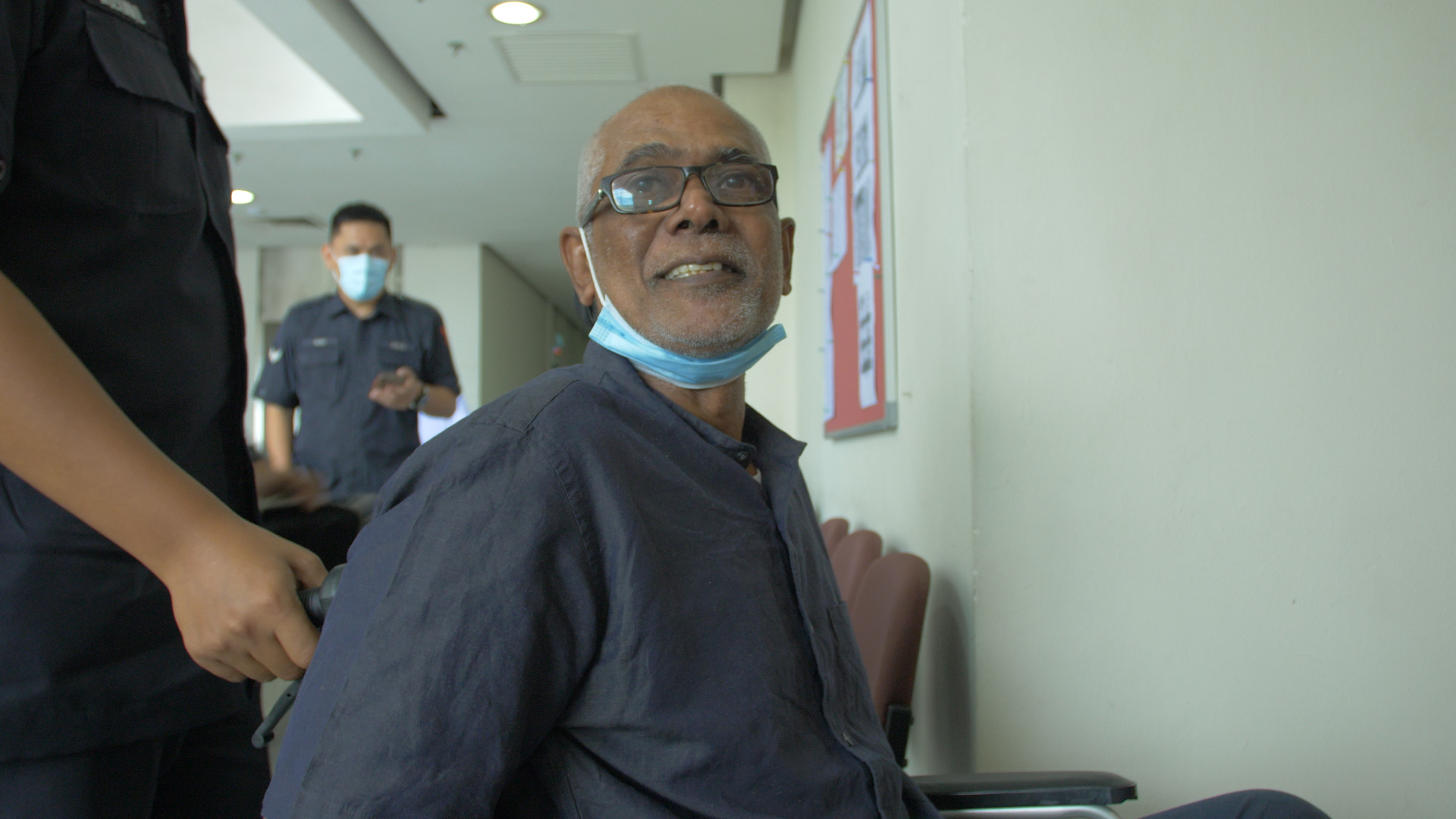
Rights groups estimate that more than 1,000 people remain on death row in Malaysia over drug offences. A moratorium on executions is currently in place, with the fate of many convicted on similar offences as Dr Ganja, still hanging in the balance.
Among those is Mohammed Zaireen bin Zainal, founder of the Malaysian Marijuana Education Movement, who is awaiting a final appeal. A coconut milk seller from the island of Penang was also recently sentenced to death in September for selling cannabis at a local food court.
But the issue has also seen recent positive developments, like the case of a 30-year-old man who managed to escape the gallows after successfully appealing his death sentence in 2015, reigniting hope among Malaysian advocacy groups as well as international observers.
“The Malaysian government must continue efforts to repeal the mandatory death penalty for all crimes including drug trafficking, and review the policies and laws that have led to the overcrowding of prisons across the country,” said Katrina Maliamauv, executive director for Amnesty Malaysia.
Harish Kumar, from the Malaysia Society of Awareness which campaigns for the legalization of medical marijuana in the country, stressed that more change was needed.
“Cannabis is a medicinal plant, it’s as simple as that. We need to get rid of the public stigma around drugs, which is still prevalent among many Malaysians,” Kumar said.
“Cannabis is a medicinal plant, it’s as simple as that.”
There had been previous talk of fully legalizing cannabis for medicinal purposes in Malaysia after Thailand became the first Southeast Asian country in 2018 to do so — but Kumar said that movements stalled after political upheaval and highlighted crucial support that was still needed from the government to enact “meaningful change” in parliament.
The trailer for the documentary film titled, ‘My Father, Dr G’.
Campaigning for Dr Ganja’s freedom are three young local filmmakers, Jo Yee Loh, Hidayah Hisham and Dominique Teoh, who recently released a full-length documentary about his family’s plight.
“His story isn’t just a medical debate, it’s one that affects the discussion and debate about human rights in Malaysia too,” the group told VICE World News.
“Thousands of families across Malaysia, like his, have been affected by the drug laws. More Malaysians need to be convinced that marijuana isn’t a dangerous drug and people who need it should be allowed legitimate access, not be persecuted and punished.”
“Thousands of families across Malaysia have been affected by the drug laws. More Malaysians need to be convinced that marijuana isn’t a dangerous drug.”
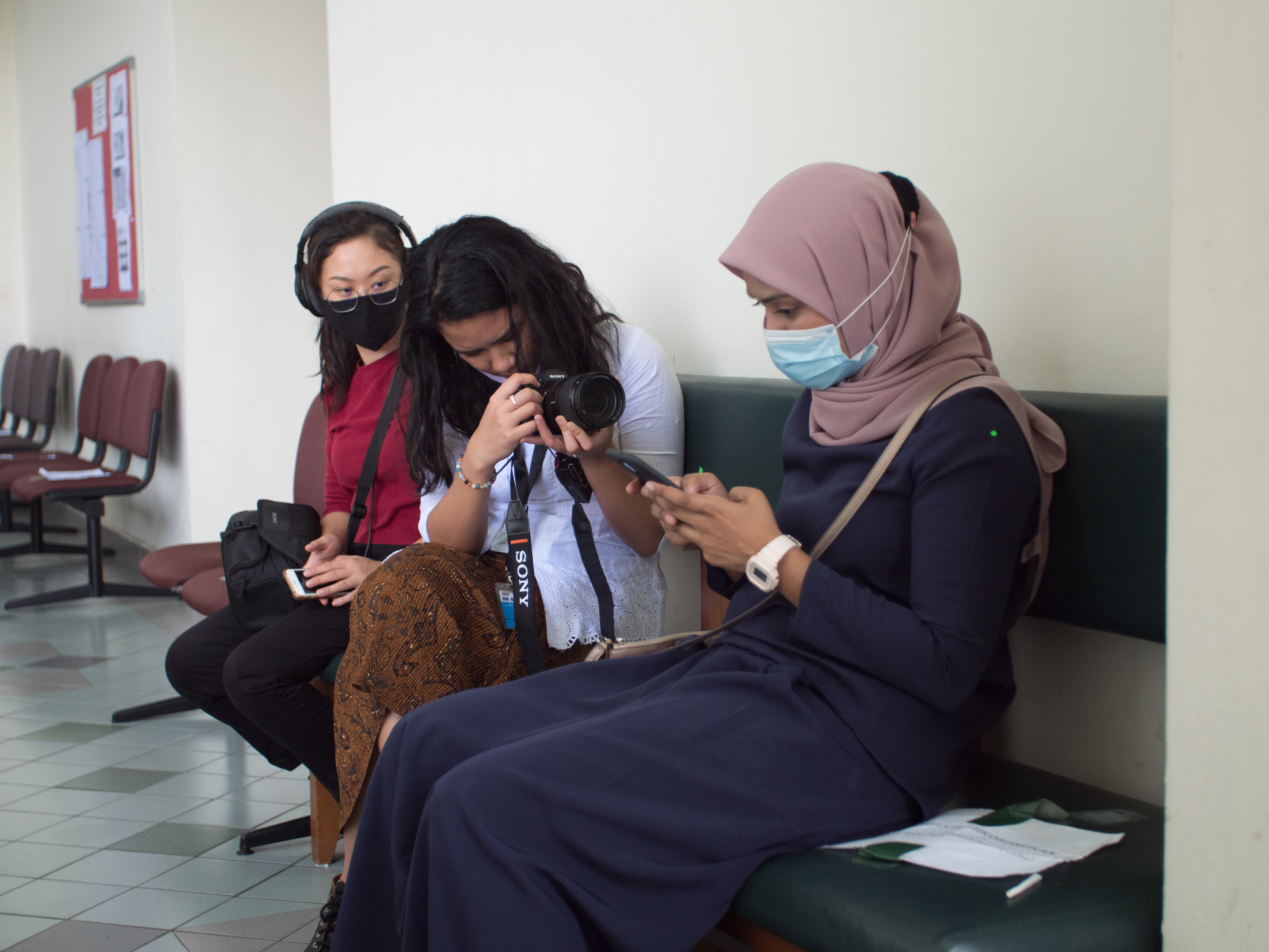
With heavy restrictions around prison visits still in place, Siti hasn’t heard from her father in months.
She said that weekly phone calls from him had stopped, and she remained worried about his health in prison. Urinary tract infections, frequent abdominal pains and a flu scare in December left the family fearing for his health and safety as coronavirus outbreaks were reported across multiple prisons.
“I’m fighting for my father and mourn every day that he’s away,” Siti said.
“But nothing will change unless our laws change and I can’t shake the feeling that he’s already beyond our reach.”
Follow Heather Chen on Twitter.
